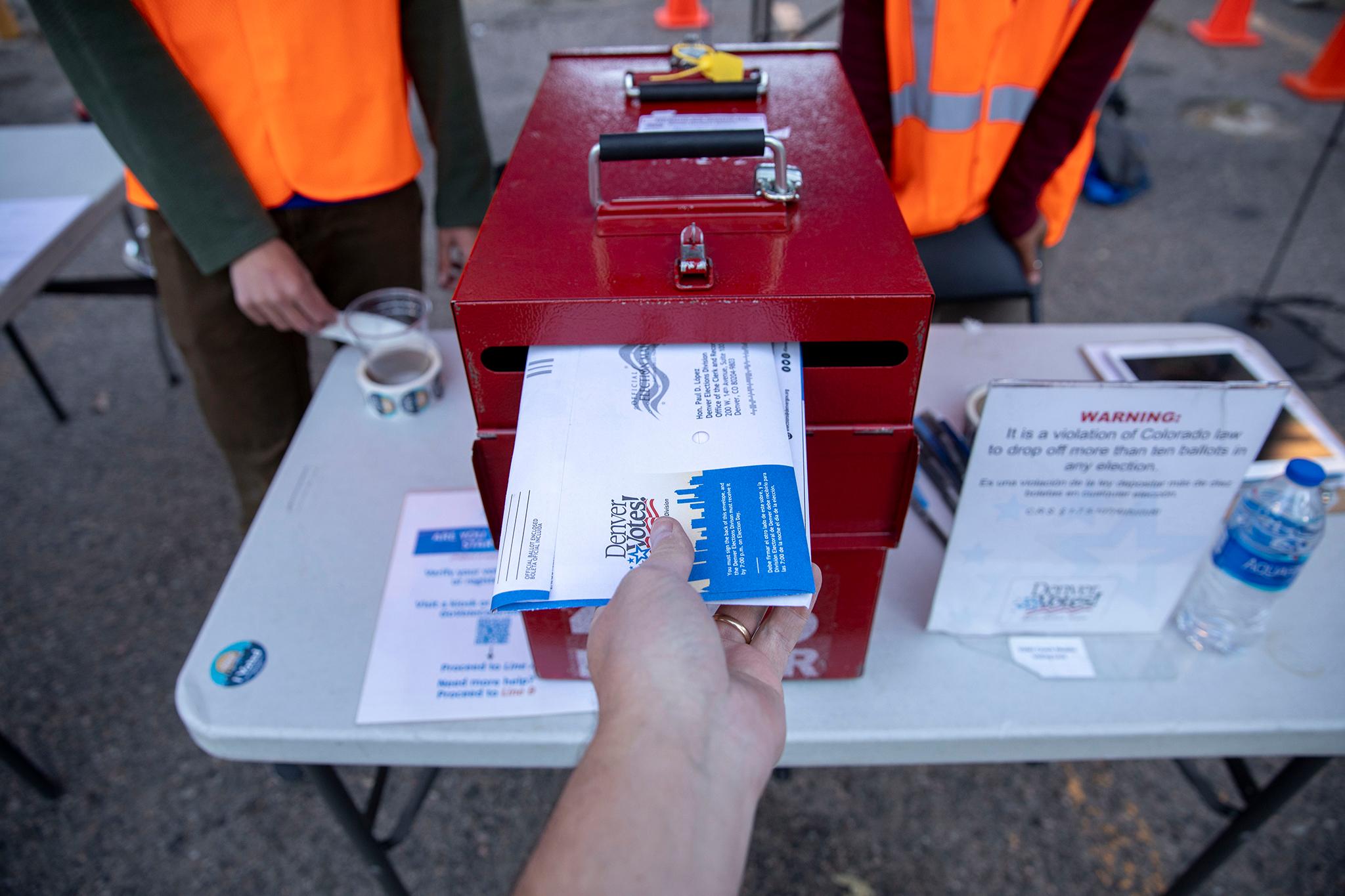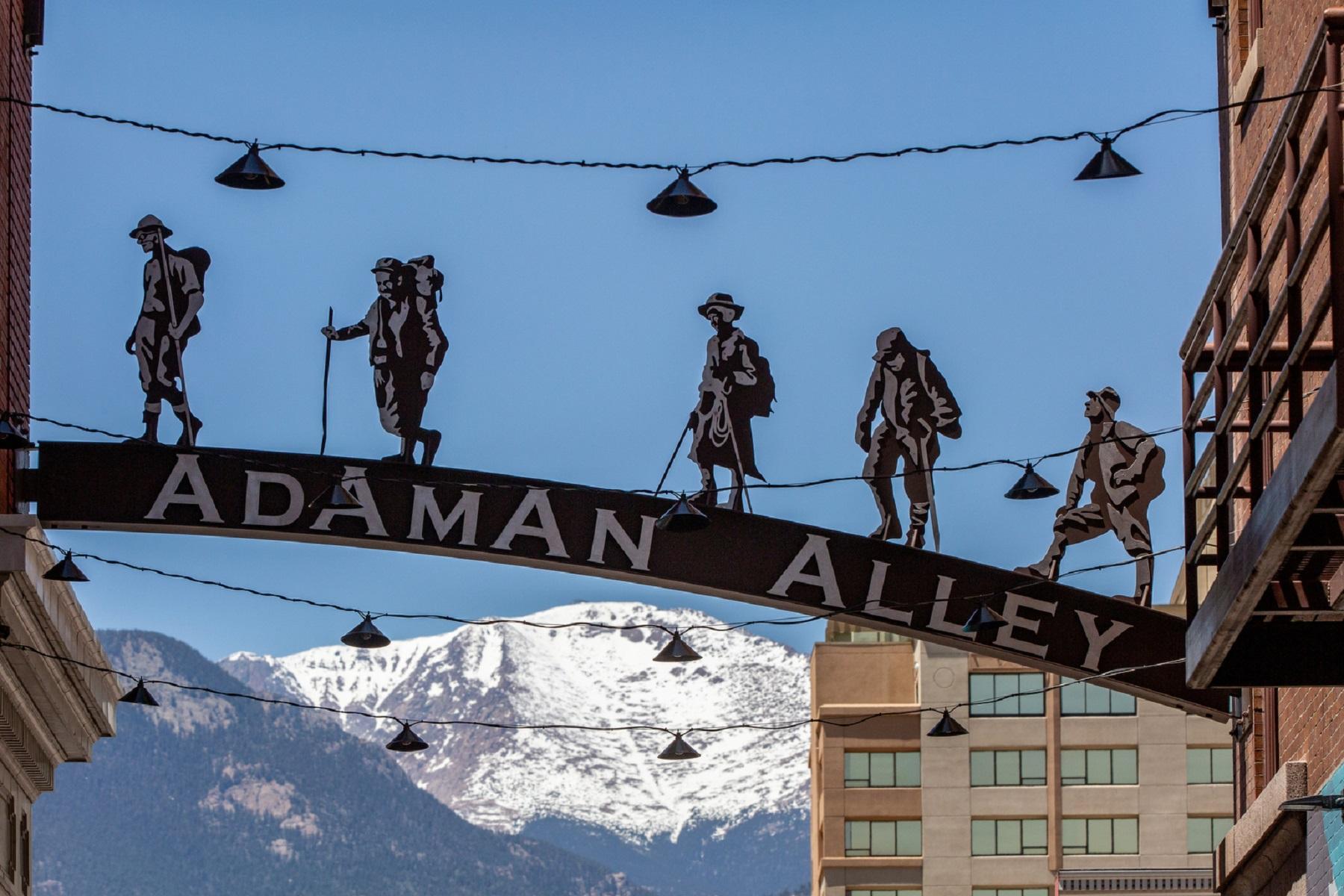
As we enter the final countdown to the election, people throughout Colorado should have received their ballots in the mail. Occasionally, however, voters may find more than just their ballot in their mailbox.
That’s what happened to a reader in Pueblo, who wrote in to Colorado Wonders, asking: “We received a ballot for my son who passed away and his wife, who has not lived in Colorado for two years. What should I do with these ballots?”
Tiffany Lee, the Clerk and Recorder in La Plata County says there’s one thing she hopes people in that situation won’t do: throw the ballot away. Instead, she says the best thing is to return it to their clerk’s office with a quick note explaining the situation.
“They can just write on that envelope ‘does not live here any longer’ or something like that,” Lee said. “That triggers us to start the process of inactivating the person.”
To get that ballot back, people can drop it in a county drop box, return it at a vote center or even just mark it as undeliverable and put it back in their mailbox.
If it’s the ballot of someone who no longer lives at that address, or even in the state, clerks will try to send them a notice that they received a returned ballot and urge them to update their information. (Clerks also use government databases to spot voters who’ve moved.)
Ballots are not forwardable, meaning if the last person who lived at your address signed up to have their mail sent along to them, their ballot won’t be included.
“We want to make sure that we are mailing your ballot to your correct address,” Amanda Gonzalez, the Clerk and County Recorder for Jefferson County explained. “If you no longer live there, we don't want to forward that to a new address because you might need a different ballot style.”
In the case of a deceased person, clerks ask for a little more detail. The person returning the ballot should write on its unopened envelope: “Deceased” and sign it. Lee said it’s also helpful if you can include the date of death; it helps when her staff goes to verify things.
“We daily look at obituaries, we look at our mortuaries,” Lee said. “We also have a recorded death certificate that comes in through our recording department.”
When people return these mid-delivered ballots, it streamlines the process for the clerks to stay on top of who is eligible to vote in their counties.
“We have a number of systems in place to make sure that we have correct information and the most up-to-date information in our voter rolls possible. And this is just one more way that we can get correct information,” Gonzalez said.
Most importantly, clerks are very clear that the one thing people should not is try to vote with these ballots.
“It's a felony, number one,” said Lee. “And number two, we're doing credentialing. We're verifying that signature against that voter's record to ensure that that is truly that person that signed it. So this misconception of people being able to just get ballots and vote them is not accurate. That's not true.”
Election officials in Mesa County recently used signature verification and ballot alerts to uncover a dozen ballots that had been stolen and fraudulently submitted. That investigation is ongoing.
Communication between residents and their county clerks is important, especially during election season.
“It's really important that people just don't throw that ballot away, that they correspond with us. We hear all the time, ‘I keep getting my son's ballot. He moved away years ago.’” Lee said. “Let us know that. Send that back to us.”









